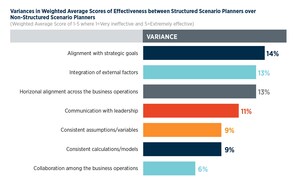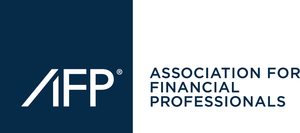
Organizations Want Consistent BAI Format, Implementation Across Banks, Survey Shows
International group seeking compatible global payments standards using AFP Survey
WASHINGTON, July 16 /PRNewswire-USNewswire/ -- Corporate treasurers want a much more consistent messaging format when their banks report transaction and account information, according to a survey by the Association for Financial Professionals (AFP).
AFP's Survey of Corporate Practices using the BAI Codes was sent to organizations in April to help identify the updates needed for this messaging format, which is known as the BAI Codes Information Reporting Standard.
AFP's survey results indicate an overwhelming majority (84 percent) of corporate respondents would like to see format and implementation guides standardized across all banks. Forty-four percent would like the tags and XML descriptions standardized so that both machines and humans can more easily read the information. Other desired changes include providing better data structure (37 percent) and minimizing the level of customization allowed (25 percent).
"The old BAI standard has long been overdue for an overhaul," said David Bellinger, AFP's director of payments. "Our corporate members need consistent global standards and in this survey they made it clear the BAI standard can make it a challenge to efficiently apply the data they need to manage their global treasury and liquidity operations, particularly when they use more than one bank."
BAI refers to the ubiquitous Banking Administration Institute format used for current or previous-day information reporting. Over time, these transaction codes have been significantly modified by the banks that use them, leading to technical difficulties ––not to mention additional costs–– whenever a company changes its banking relationships. Moreover, disparities across banks have made it difficult for corporates to process real-time data that could give them full transparency into their liquidity picture.
A group that has been working with the ANSI X9 standards body to update the BAI standard will consider the results of the AFP's survey. ANSI X9 has the mission to create and promote standards for delivery of products and services by the financial services industry.
This group, which includes AFP, banks, corporate practitioners, vendors, and SWIFT, intends to convert the old BAI codes to an X9 standard and thus make it more compatible with other global industry standards. The group also seeks to provide best practices and implementation guidelines.
The group's first draft of the new standard should be available for review in the fall of 2010.
ABOUT THE SURVEY
In April 2010, the Research Department of the Association for Financial Professionals (AFP) surveyed 6,300 of its members about reporting standards that they use to receive important information about the cash management and treasury services provided by their banks and other vendors. The survey generated responses from 1,116 financial professionals. Results reflect responses from corporate practitioners (i.e., non-financial institutional).
- Download AFP's Survey of Corporate Practices using the BAI Codes the full survey (PDF) http://www.afponline.org/pub/pdf/BAI_Survey_Results_Summary.pdf
- Payments resources from AFP: http://www.afponline.org/payments
ABOUT AFP®
The Association for Financial Professionals (AFP), headquartered outside Washington, D.C., serves a network of more than 16,000, members with news, economic research and data, treasury certification programs, networking events, financial analytical tools, training, and public policy representation to legislators and regulators. AFP is the daily resource for the finance profession (www.afponline.org).
AFP's global reach extends to over 150,000 treasury and financial professionals worldwide, including AFP of Canada; London-based gtnews, an on-line resource for the treasury and finance community; and bobsguide, a financial IT solutions network.
SOURCE Association for Financial Professionals






Share this article